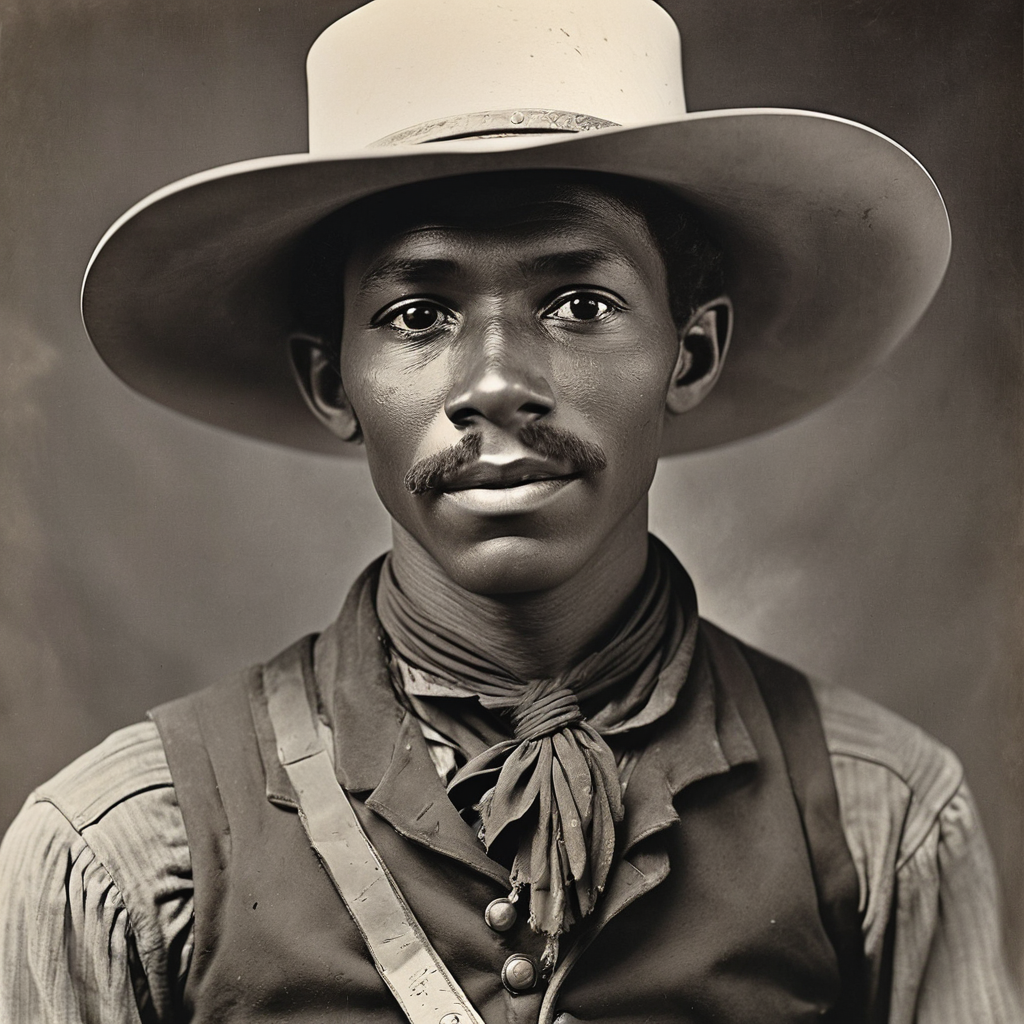5 Legendary Black Cowboys to Know
The Wild West – a land of the lawless, rugged denim wearing cowboys, saloons and epic showdowns. The cowboys we see have been portrayed as one-dimensional white heroes. The truth is, the Wild West was far more diverse, in fact one in four American cowboys were Black and they played a vital role in shaping this iconic era. Introducing 5 legendary Black cowboys.
Bass Reeves (1838-1910)
Born into slavery, Bass was forced to enlist in the Confederate army. He soon escaped, fleeing to Indian territory, where he lived amongst the Cherokee and Seminole tribes. Once the war was over and slavery abolished Reeves returned to Arkansas, to live his life as a cowboy on the farm.
In 1875, he was appointed the federal judge for the Indian territory, before becoming the first Black deputy Marshal west of Mississippi. He was responsible for capturing some of the biggest outlaws of the time. Reeves has been inducted into the National Cowboy and Heritage Museum’s Hall of Great Westerners.
William “Bill” Pickett (1870-1932)
A rodeo star famous for inventing "bulldogging," a technique for wrestling steers to the ground. His innovation became a staple of rodeo competition still practised today.
Pickett was born in Texas and was of American Indian and African American descent. He grew up on a ranch where he learned to ride a horse and rope as a young boy. Picket became so skillful, he got signed to perform! In 1907, he joined the 101 Ranch Wild West Show as the headline act and performed alongside Buffalo Bill. He would later go on to appear in silent films such as The Bull-dogger and The Crimson Skull.
William “Bill” Pickett
Nat Love (1854-1921)
Nicknamed "Deadwood Dick'' after winning a rodeo competition in Deadwood, South Dakota. Famed for his sharpshooting skills and cattle drives, he was a storyteller too. After years herding cattle on the Chisholm Trail, he documented his Wild West adventures in his autobiography, The Life and Adventures of Nat Love (1907). His book played a crucial part in correcting history’s account of the stereotypical white cowboys that dominated narratives.
Love was born into slavery in Tennessee and freed as a young boy. He moved to Texas at the age of 16 after earning money from selling horses he won in raffles. He worked as a ranch hand and cattle herder, driving cattle across hundreds of miles. Love chronicled his long trails, camaraderie with other cowboys and meeting the likes of Billy the Kid and Pat Garrett. He wrote about how difficult being a cowboy was but equally loved it just the same. In popular culture, Nat Love is depicted in films such as The Cherokee Kid, The Harder They Fall and They Die by Dawn.
Nat Love
Bose Ikard (1843-1929)
Born in Mississippi, before moving to Texas along with his master, where he worked on the ranch and learned the skills of a cowboy.
Once slavery was abolished, Ikard went to work for Oliver Loving and Charles Goodnight, on what was famously called the Goodnight-Loving Trail. Loving was killed by local indians, however Ikard and Goodnight continued to work together, developing a lifelong friendship. His legacy inspired a character in the classic Western novel and miniseries Lonesome Dove, based on the adventures of Ikard, Loving and Goodnight.
Bose Ikard
"Stagecoach" Mary Fields (1832-1914):
More Than Just a Laundress Mary Fields was fearless in the rough and male dominated Wild West. She was the first African American woman to become a U.S. postal service star route carrier, secured through contract bonds. Fields would deliver posts on horseback in rough terrain and inclement weather, venturing on solo trips fully armed and ready to fire.
Not much is known about her early life, we do know that she became part of a convent and moved to Montana. Fields was six feet tall and weighed about 91kg (200lbs), loved drinking and hanging out in the saloons, contrary to convent life. It was in Montana that she began her 8 year career as a self-employed postal service worker.
"Stagecoach" Mary Fields






